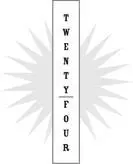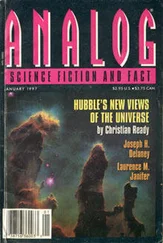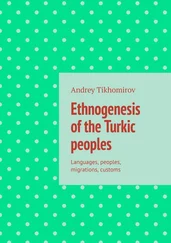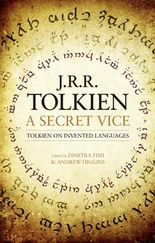Though language inventors may have set their sights on issues a little more immediate than the ten-thousand-year communication problem, too many of them have made the mistake of believing that if they just worked hard enough, they could come up with a language that would transcend society. But it is society that creates meaning, and therefore language. The best hope a language inventor has for the survival of his or her project is to find a group of people who will use it, and then hand it over and let them ruin its perfection.
Though there have been successes in the story of invented languages, they have been qualified ones. Some languages have gotten attention or praise or even communities of speakers, but none of them have fulfilled their original missions. We still don’t have a worldwide international auxiliary language or a proven cure for all the supposed inadequacies of language. And so ambitious inventor types are still working on it. Every year still sees a few more proposals for a new world language, an improved Esperanto, or a perfect system of mathematical concept formation. I recently purchased a book, self-published by John Yench in 2003, on Idirl, “a universal language for all mankind, with none of the inconsistencies and awkward irregularities of existing natural languages, a self-consistent language where a word’s sequence of sounds alone tell you its meaning, without needing a dictionary.” Mr. Yench is a bit behind the times in his method of spreading the word about his language. These days, language inventors no longer scrape together their savings in order to print books and mail them out to the libraries and government offices of the world. Instead, they set up Web sites. The language inventors, like most everyone else, have taken their ideas and their products to the Internet.
And, like most everyone else, they are able to find some kind of audience this way. Well-established languages like Esperanto and Lojban, by providing forums where people can use and learn the languages without having to travel or wait for feedback, have attracted a good number of converts every year, and even old projects like Volapük, Ido, and Interlingua have picked up some new life online. But so much easy access to information about so many projects makes the competition that much fiercer. As many languages as there are on the Web, there are more angry flame wars and long manifestos about why this language is more logical, more systematic, more international, more likely to be adopted by the UN, less biased toward Europeans, less difficult to learn, less ambiguous, less likely to be abused by politicians …
All this fighting stems from the illusion that people choose to learn a language for rational reasons, that they are looking for the language that has the most useful features, the best agenda. But no one is out there comparison shopping for an artificial language. They find what they like, and there’s no accounting for taste. There are Esperanto types, and there are Lojban types, and there are even a few proudly defiant Volapük types.
As it turns out, it is possible for an invented language to succeed even if it has no useful features at all. One of the most successful languages of the current era is neither free from irregularities nor easy to learn. It has no mission: it wasn’t intended to unite mankind or improve the mind or even be spoken by people in the real world. But it suited the personal taste of a certain group of people so well that as soon as they saw it, they fell in love, clamored for more, and formed a community that brought it to life.
And so we come back to the story of Klingon.

When the Klingons first appeared on the original Star Trek television show, which ended in 1969, they were little more than grunting belligerents in greasepaint. They developed their trademark ridged foreheads for the first Star Trek movie in 1979, but it wasn’t until the second incarnation of the television series, Star Trek: The Next Generation , which began in 1987, that Klingons were portrayed as complex members of a richly articulated alien culture.
In that series and subsequent Star Trek movies, audiences learned that Klingons are rough, crude, loyal, violent, and honorable—a sort of Viking-Spartan-samurai motorcycle gang. They eat qagh (live serpent worms), drink strong alcohol, and sleep on hard surfaces. They have a rite of passage (a youth is ceremoniously beaten with something called a painstik ) and a creation myth (the first Klingon and his mate destroyed the gods who created them and burned down the heavens). Cursing is an esteemed art form, one of the most offensive insults being “ Hab SoSlI' Quch ” (Your mother has a smooth forehead). Their mating practices involve the hurling of heavy objects and often result in injury. They are fond of reciting their numerous proverbs, which express their values: “ quv Hutlh HoHbogh tlhIngan ach qabDaj 'angbe’bogh ” (The Klingon who kills without showing his face has no honor); “ Dubotchugh yIpummoH ” (If it is in your way, knock it down); “ bIjatlh 'e’yImev, yItlhutlh ” (Stop talking and drink!); and my personal favorite, “ bortaS nIvqu 'oH bortaS’e' ” (Revenge is the best revenge).
Klingon is indeed difficult to pronounce, but at least it uses phonetic spelling—once you know what sound each letter represents, you can pronounce any Klingon word. The vowels are easy—a as in “father,” e as in “ten,” I as in “give,” o as in “phone,” u as in “tune.” The consonants are more difficult. The H is pronounced as the “ch” sound in Yiddish words like “chutzpah” or the German exclamation ach ! The Klingon D is pronounced as someone from India might pronounce a d —place the tip of your tongue at the middle of the roof of your mouth rather than the ridge behind your teeth. The S is similar to the English “sh,” but also with the tongue tip at the roof of the mouth. If you say the word SoD (flood) properly, it will feel bunched up and sluggish in your mouth. The q is pronounced like a k but farther back in the throat, as if you are choking. The Q is pronounced like the q , but more forcefully. If you’re the adventurous type, try saying the word for the verb “to mutiny”— qIQ . If some saliva flies out, great job. If your lunch flies out, try again later.
The other Klingon spellings requiring explanation are ng (the same as in English, but it can also occur at the beginning of a word, as in ngav —“writer’s cramp”), gh (the same sound as Klingon H , but with the vocal cords vibrating, as if you were gargling), tlh (begins like t , but leave the tip of your tongue in position while you lower the sides to let the air through), j (the j of “job,” not of “hallelujah”), and finally, the glottal stop', indicating a complete closure of the glottis, as performed before “oh” in the phrase “uh-oh.” Now go back to the previous page and try a proverb, if you dare.
The phonological system of the language is by design harsh, guttural, and alien, like Klingons, but it also makes a certain kind of linguistic sense. The language doesn’t include barks, growls, or other sounds not used in human languages. And the sounds it does use are not even that exotic as far as real languages go: no clicks, trills, ingressives, or voiceless vowels.
“The goal was for the language to be as unlike human language as possible while at the same time still pronounceable by actors,” I was told by Marc Okrand, the inventor of the Klingon language. “The alien character of Klingon doesn’t stem so much from the sounds it uses as from the way that it violates the rules of commonly co-occurring sounds. There’s nothing extraordinary about the sounds from a linguistic standpoint. You just wouldn’t expect to find them all in the same language.”
Читать дальше













